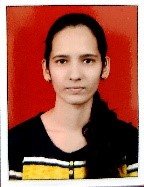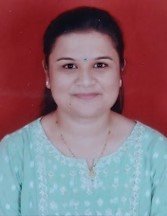M.Sc.(Computer Science) / MCS
Intake Capacity- 30
Two Year M.Sc. Degree Program in Computer Science
(Faculty of Science & Technology)
Choice Based Credit System
Preamble: This syllabus is the extension of the existing syllabus which is currently being taught to M.Sc. (Computer Science) of Savitribai Phule Pune University for the last few years, but modified to be placed within the credit based system to be implemented from the academic year 2019-2020. However, there are few changes incorporated in the existing syllabus. It is believed that the proposed changes as part of the credit based system will bring a qualitative change in the way M.Sc. (Computer Science) is taught, which will offer a more enriched learning experience. It aims to provide technology-oriented students with the knowledge and ability to develop creative solutions, and better understand the effects of future developments of computer systems and technology on people and society. The syllabus is about developing skills to learn new technology, grasping the concepts and issues behind its use and the use of computers.
| Sr. No. | Name | Education | Designation | Exprience | Photo |
|---|---|---|---|---|---|
| 1 | Prof. Kiran Chaudhari | MCS, MCM | Vice Principal | 31 Years |  |
| 2 | Prof. Swapnil More | M.Sc.(Comp. Sci.) NET, SET | HOD | 6 Years |  |
| 3 | Prof. Sanjay Chavan | M.Sc. (Statistics), Ph. D. (pursuing) | Assistant Professor | 23 Years |  |
| 4 | Prof. Mhetre Alka | M.Sc. (Comp. Sci.) | Assistant Professor | 17 Years |  |
| 5 | Prof. Alhat Shital | M.Sc. (Comp. Sci.) | Assistant Professor | 17 Years |  |
| 6 | Prof. Londhe Madhuri | M.Sc. (Comp. Sci.) | Assistant Professor | 17 Years |  |
| 7 | Prof. Waghulde Dipali | M.Sc. (Mathematics), SET, Ph. D. (pursuing) | Assistant Professor | 16 Years |  |
| 8 | Prof. Mayura Sawant | M.Sc. (Comp. Sci.) | Assistant Professor | 1 Year |  |
| 9 | Prof. Pooja Sandbhor | M.Sc. (Comp. Sci.) | Assistant Professor | 1 Year |  |
| 10 | Prof. Balghare Sonali | M.Sc. (Comp. Sci.) | Assistant Professor | 1 Year |  |
| 11 | Prof. Mhetre Priyanka | M.Sc. (Mathematics) | Assistant Professor | 5 Years |  |
| 12 | Prof. Ganpule Kirti | M.Sc. (Electronics) | Assistant Professor | 2 Years |  |
| 13 | Prof. Ugale Nikita | M.Sc. (Mathematics) | Assistant Professor | 1 Years |  |
| 14 | Prof. Pradnya Rokade | M.Sc. (Comp.Sci.) | Assistant Professor | 3 Years |  |
| 15 | Prof. Trupti Mahajan | M.Sc. (Comp.Sci.), NET | Assistant Professor | 2 Years |  |
| 16 | Prof. Fulpagar Kamini | M.Sc. (Electronics) | Assistant Professor | 6 Years |  |
SEM – III
| 1 | CSUT231 | Software Architecture and Design Patterns |
| 2 | CSUT232 | Machine Learning |
| 3 | CSUT233 | Web Frameworks |
| 4 | CSDT234C | Project |
| 5 | CSDP234C | Project related Assignments |
| 6 | CSUP235 | Practical on CSUT231, CSUT232 and CSUT233 |
SEM – IV
| 1 | CSUIT241 | Industrial Training /Institutional project |
Course Outcomes
Semester – I
Course Title:- CSUT111: Paradigm of Programming Language
- Tounderstand the basic language implementation
- Developthe ability to learn new languages more
- Tounderstand the concept of functional programming
- Developthe ability to learn and write small programs in different programming
Course Title:-CSUT112: Design and Analysis of Algorithm
- Todesign efficient algorithms using various algorithm designing
- Toanalyze the problem and develop the algorithms related to these
- Toclassify the problem and apply the appropriate design strategy to develop an
- Todesign an algorithm in the context of space and time complexity and apply the asymptotic
Course Title:-CSUT113: Database Technologies
- Tostudy types of NoSQL databases (Document oriented, key Value pairs, Column- oriented and Graph)
- Tounderstand detailed architecture, define objects, load data, query data, and performance tune NoSQL
- Ableto handle large volumes of structured, semi-structured, and unstructured data using database technologies.
Course Title:-CSDT114: Cloud computing (Choice Based Optional Paper)
- Tounderstand the principles and paradigm of Cloud
- Abilityto design and deploy Cloud
- Understandcloud security issues and
- Abilityto understand the role of Virtualization
- Design& develop backup strategies for cloud data based on
Course Title:-CSDT114: Artificial Intelligence (Choice Based Optional Paper)
- Toanalyze and formalize the problem as a state space, graph, design
- Abilityto represent solutions for variousreal-life problem domains using logic-based
- Understandthe numerous applications and huge possibilities in the field of AI
- Abilityto express ideas in AI research and programming language related toemerging technology
Course Title:-CSDT114: Web Services (Choice Based Optional Paper) Course Outcomes:
- Tounderstand the details of web services technologies like WSDL, UDDI,
- Abilityto learn how to implement and deploy web service client and
- Learnhow to explore interoperability between different
- Understandarchitectural elements of a RESTful
Course Title:-CSUP115: PPL and Database Technologies Practical
- Applythe knowledge of Scala to develop web-based applications
- Providesknowledge of code optimization
- Tounderstand the concept of
- Ableto build and maintain database handling in real-life applications and daily
Able to perform hands-on NoSql database lab assignments that will allow students to use the four NoSQL database types via products such as Cassandra, MongoDB,Neo4J, and Riak.
Semester – II Course Title:-CSUT121: Advanced Operating System
- Todesign and understand different OS components: System calls, Schedulers, Memory management systems, Virtual Memory, and Paging
- Toevaluate,and compare OS components through instrumentation for performance
- Toanalyze the various device and resource management techniques for timesharing and distributed
- Todevelop and analyze simple concurrent programs using transactional memory and message passing, and to understand the trade-offs and implementation
Course Title:-CSUT122: Mobile Technologies Course Outcomes:
- Togain knowledge of installing Android Studio and Cross-Platform Integrated Development
- Developan ability to use the techniques, skills, and modern
- Todevelop the different applications that mobile computing offers to people, employees, and
- Todevelop high levels of technical competence in the field of mobile
Course Title:-CSUT123: Software Project Management
- To identifythe impact of IT projects on the performance of the organizations
- Tounderstand, manage and develop IT infrastructure in different projects
- Todevelop strategies to calculate risk factors involved in IT projects
- To use project management software to control the design, implementation ,closure , and evaluation of IT projects
- Toestimate, plan, calculate, and adjust project
- Applyproject management practices to launch new programs, initiatives, products, services, and events relative to the needs of
Course Title:-CSDT124: Project (Choice Based Optional Paper)
- Abilityto design solutions to complex real-world problems
- Gaina deep knowledge of all phases of the project development life
- Ableto develop a sound technical knowledge of the selected platform for the project.
- Ableto know how to work in a group.
Course Title:-CSDT124: Human-Computer Interaction (Choice Based Optional Paper)
- Applyan interactive design process and universal design principles to designing HCI
- Toanalyze and discuss HCI issues in groupware, ubiquitous computing, virtual reality, multimedia, and Word Wide Web-related
- Explainthe importance of iteration, evaluation, and prototyping in interaction design
- Toanalyze and identify user models, user support, socio-organizational issues, and stakeholder requirements of HCI
Course Title:-CSDT124: Soft Computing (Choice Based Optional Paper)
- Todiscuss the ideas of fuzzy sets, fuzzy logic, and the use of heuristics based on human experience
- Torelate with neural networks that can learn from available examples and generalize to form appropriate rules for inference systems
- Todescribe with genetic algorithms and other random search procedures useful while seeking global optimum in self-learning
Course Title:-CSUP125: Practical on Advanced OS & Mobile Technologies
- Abilityto understand internal structure and operations of OS along with various processes including threading, inter-process communication, and synchronization with I/O
- Awarenessof computational issues, resources in a distributed
- Todevelop mobile computing applications by analyzing their characteristics and requirements, selecting the appropriate computing models and software architectures, and applying standard programming languages and
- To understand how the underlying wireless and mobile communication networks work,their technical features, and what kinds of applications they can
Semester – III
Course Title:-CS 301: Software Metrics & Project Management
- Acquirea good knowledge of the issues and challenges faced while doing the Software
project Management.
- Tounderstand why the majority of the software projects fail and how that failure probability can be reduced
- Todo the Project Scheduling, tracking, Risk analysis, Quality management, and Project Cost estimation using different
- Studentswill learn good communication skills, improve presentation and team forming
Course Title:-CS 302: Mobile Computing
- Getfamiliar with various generations of mobile
- Understandthe concept of cellular communication
- Understandthe basics of wireless communication
- GetKnowledge of GSM mobile communication standards, their architecture, logical channels, advantages, and
- Developthe ability to develop Android
Course Title:-CS 303: Soft Computing
- Understandthe basic areas of Soft Computing including Artificial Neural Networks, Fuzzy Logic, and Genetic Algorithms
- Providethe mathematical background for carrying out the optimization associated with neural network
- Familiarwith current research problems and research methods in Soft Computing by working on a research or design
- Comprehendthe fuzzy logic and the concept of fuzziness involved in various systems and fuzzy set
Course Title:-CS-304: Project (Elective)
- Demonstratea sound technical knowledge of their selected project
- Undertakeproblem identification, formulation, and
- Designengineering solutions to complex problems utilizing a systems
- Conductan engineering project
- Communicatewith engineers and the community at large in written or oral
- Demonstratethe knowledge, skills, and attitudes of a professional
- Project-basedlearning connects students to the real
- Preparesstudents to accept and meet challenges in the real world, mirroring what professionals do every
Course Title:-CS -305: Web Services (Elective) Course Outcomes:
- UnderstandWeb Services and implementation model for SOA (Service Oriented Architecture)
- Understandcloud computing as a web
- Implementconcepts of virtualization and data in the
- Understandthe use of web services in B2C and B2B
- Willbe able to implement an application that uses multiple web services in a realistic business
Course Title:-CS -306: Database and System Administration(Elective)
- Establish a basic understanding of the process of Database Development andAdministration using
- Thestudent will be able to implement the concepts of both Operating Systems & Database Administration
- Retrieveany type of information from a database by formulating complex queries in MySQL
Semester – IV
Course Title: -CS-401: Industrial Training Course Outcomes
- Capabilityto acquire and apply fundamental principles of
- Becomea master in specialized
- Becomeupdated with all the latest changes in the technological
- Abilityto communicate
- Abilityto be a multi-skilled engineer with good technical knowledge, management, leadership, and entrepreneurship
- Abilityto identify, formulate, and model problems and find engineering solutions based on a systems approach.
- Capabilityand enthusiasm for self-improvement through continuous professional development and life-long
- Awarenessof the social, cultural, global, and environmental responsibility of an






